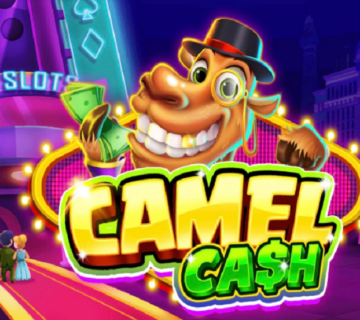For a couple of years, I’ve controlled clients from burning through a lot of cash on Facebook promotions, mainly training clients with an unreasonably high sticker cost for the simple idea of virtual entertainment. For the people who request to promote, nonetheless, I give my all to common mentor assumptions: indeed, your advertisements will get clicked, and yes, you will get more preferred to a Facebook page, yet you will not get any transformations. It simply occurs in no huge manner any longer. On the off chance that you’re offering something for nothing as an advancement, you’ll get significantly more snaps and more likes… however you will not get deal changes.
Somewhat recently or somewhere in the vicinity, notwithstanding, it’s deteriorated, in a real sense, a vast number of “counterfeit Facebook likes” come from click ranches all over the planet (regardless of whether you’re focusing on specific U.S. urban communities). There are buy facebook page likes uk with a vast number of preferences. However, just 10-20% of them are genuine individuals. The outcome is horrendous commitment, which is terrible for your page and image.
Facebook resembles Las Vegas.
Indeed, that is the best examination I can make. When somebody signs into Facebook, it’s like strolling onto the club floor at Bazaar Carnival in Las Vegas. Chimes ringing and lights blazing, scarcely dressed ladies and individuals wherever, letting you know which game to play. Individuals are far, very occupied while wandering the walkways of Facebook.
At the point when in Vegas, everybody needs complimentary beverages. Instead, they would not need to pay to win and hear the “ding, ding, ding” of the gambling machine. That is the mindset, and it’s the reason Facebook advertisements seldom convert to critical deals. That is forever the situation. What’s exacerbated it is the like ranches.
Facebook promotions to outer website pages make fake likes momentarily.
This one is intriguing. I’ve run a small bunch of tests, which happens without fail. Run a promotion on Facebook that is intended for a site click. Make it navigate to a particular page on your site that has a like button on it. When you present the promotion for the survey, it will, in a split second, go anyplace between 50-200 preferences on that objective page, all without a solitary visit to theactual page. These preferences even occur before buy facebook page likes uk endorses the promotion.
I’ve witnessed this north of twelve times (while advancing posts for a social/culture site). Make the promotion that snaps to the page, submit, and afterward stand by for about a moment and invigorate.
Presently… there is a contention that this is an obscure way to “seed” likes to a post or article you compose. Still, at the same time, it’s highly lamentable in that it can give an incredibly misleading idea that these promotions are carrying traffic to your site when that isn’t, by any stretch of the imagination, the case. The main thing I can imagine is a line someplace where unapproved promotions sit. These spammers have hacked that, so when new advertisements turn through, the pages get this frantic surge of preferences, quickly stopping after the ad has been supported. So it’s that or Facebook is doing this purposefully, which I don’t believe is the situation since that would be a horrible business.
Facebook has many clients, which brings about low worth, and needs the option to get rid of spam accounts.
The number of clients gave Facebook so much (asserted) esteem when it opened up to the world. That is all there is to it. They knew this, so as an organization, they have given their best to help up that number. That made various significant issues for publicists. For every one of the genuine clients, it makes them significantly harder to reach since there is essentially a lot of movement: Las Vegas. It additionally diminishes the worth of a like. The more clients Facebook has, the less worth and weight similar to a page becomes.
The other issue is there are, in a real sense, many phony records made by “like homesteads” who are paid a dollar for every 1000 preferences they produce. The unadulterated volume and, in general, Facebook’s action make it nearly impossible for them to erase that large number of records.
What do we do about it? Not promote. That is everything you can do. Or, on the other hand, make a promotion, get the phony likes to your page, then, at that point, don’t run the advertisements, so you don’t burn through cash (yet don’t do that for your Facebook page itself, if not it will diminish your commitment rating).
In the Facebook world, alike of a promotion is a charged snap. Publicists have squandered a large number of dollars on counterfeit preferences. That we don’t get back. Zuckerberg professes to be a splendid man, and one expectation is that he and his group of developers figure out how to stop this pattern and take some certainty back to sponsors.
Individuals Who Think buy facebook page likes uk Is Loaded with Counterfeit Preferences Are Fixated on This Video
You’ve likely never known about Derek Muller or his science-situated YouTube station, Veritasium. However, on the off chance that you’re one of those individuals who accept Facebook is loaded with counterfeit preferences made by bogus records, you’ve most likely seen this video.
Business Insider composed two or three late tales about counterfeit preferences on Facebook, and a few perusers attracted this video to our consideration. It’s been seen by 1.5 million individuals since Feb. 10. Individuals appear to view it as the Zapruder film of phony preferences.
In the video, Muller makes sense of how he became captivated (and irritated) by the fact that the vast majority of his own Facebook page preferences are not certifiable. He enjoyed taking benefit of a Facebook proposition to run $50 worth of buy instant facebook likes and found to his underlying pleasure that his Facebook page soared from having just 2,000 likes to more than 70,000.
Muller makes sense of the issue that many of those preferences ended up phony. However, he was especially irritated because the choices didn’t come from an obscure third-world snap ranch that conveys likes in mass. Instead, they came after he utilized Facebook’s promotion purchasing framework.
To test his hypothesis that publicizing on Facebook was conveying piles of false devotees, he made “Virtual Feline,” a purposely horrendous Facebook page that has no real happiness on it:
“Just a numbskull would like this page,” Muller cautions. After only $10 of promoting, the page topped off with counterfeit preferences.
Muller noticed that even Facebook’s own Facebook Security page is most well known in Dhaka, Bangladesh — a famous home of snap ranches. (Dhaka has since been overwhelmed by the snap homesteads of Cairo, Egypt, on that page.)
The phony preferences are most likely coming from counterfeit records worked by individuals who will tap on anything to make their fake documents look certifiable, Muller closes.
The issue is intensified by the way that page administrators can’t erase counterfeit preferences in mass, Muller says. (Design magazine distributer Raaj Kapur Brar found this issue solely after debilitating a $600,000 Facebook promotion financial plan.)
More awful, Muller says, when your page has too many phony likes, the natural reach of any post you compose may turn out to be diminished to such an extent that you’re compelled to purchase advanced positions just so your genuine fans can see them.
Facebook has been in a drawn-out battle against counterfeit records for quite a long time. Back in 2012, it started a mass erasure of phony documents. However, it isn’t in that frame of mind for counterfeit records to exist definitively because sponsors can’t stand them. The organization’s yearly report says that around 0.4% – 1.2% of all dynamic clients are oppressive records that make counterfeit preferences. Yet, Facebook has 1.2 billion clients — so regardless of whether a nominal rate is phony, that is, as yet, a few million fake records.
Read More: How to Change Spotify Username?




